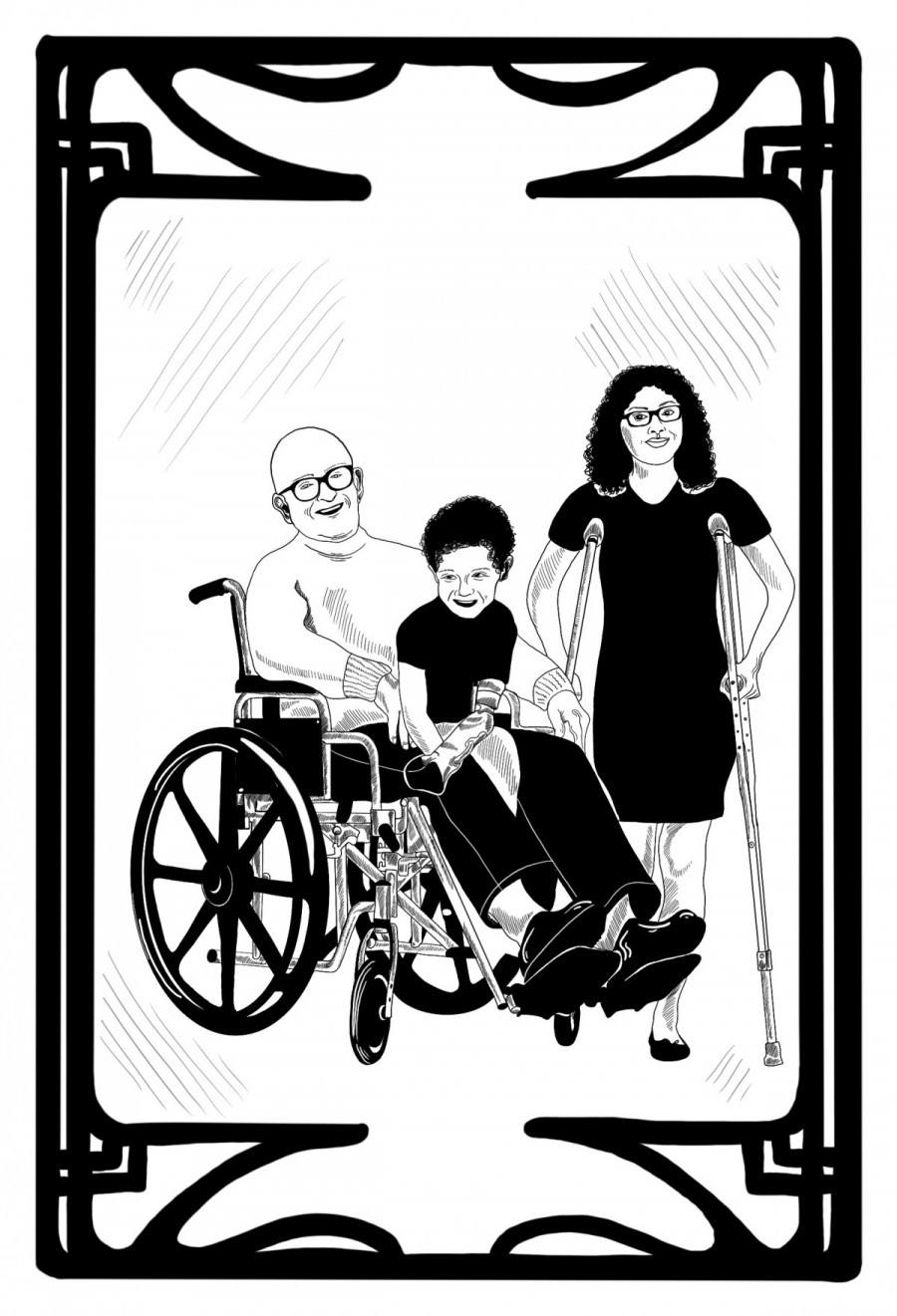My Brother Sean Was an Interesting Person
Changing How We See Those With Disabilities, Thanks to my Brother
My older brother Sean lived with a condition called Duchenne Muscular Dystrophy, a neuromuscular disease that creates progressive muscle degeneration.
In layman’s terms, Sean’s muscle tissue broke down over time. Additionally, my brother was diagnosed with a Pervasive Developmental Disorder— a diagnosis, understood at the time, as an umbrella term, encompassing disorders such as Autism and Aspergers.
Because of his condition, my brother used a motorized wheelchair to move around. Sean was a unique and special person. If you knew him, you would say that he was much more than someone with DMD. Many people found it difficult to look past that because of his condition. It is a real shame because if people were to put their ignorance aside, they would clue into how you should treat those with disabilities properly.
I can point out issues I’ve seen countless times while growing up alongside Sean. In an attempt to shed light on the matter, hopefully more able-bodied people can identify what they do wrong, and can alter these habits to better welcome those with disabilities into society.
Bullying is still a thing. I’m just as shocked as you are, dear reader. Harsh names and mean, narrow-minded descriptors are often the weapons of choice, but there is also a form of bullying that stems less from children, and more from their parents whose ignorance causes hurt.
When you’re a wheelchair user in high school, like Sean was, at times you can be described as “popular”. Popular for the wrong reasons. As I said, I don’t so much blame the kids for this. I implore parents who hear about a nickname to enquire into what that nickname is, why it is attributed to the individual and use proper judgment about whether it is appropriate. Through this assessment of the situation, showing empathy towards a peer promotes education and teaches your able-bodied children to be more respectful.
The last thing I’ll say about the issue of bullying is that my brother was pretty good with words. As we were siblings, teasing and name-calling were a rite of passage. I had the privilege of being annoying for a long time. For any comment I’d throw Sean’s way, he would often have an acceptable retort for his younger brother’s pestering. He found ways to incorporate inanimate objects in a clever fashion. I was called a “doorknob” for a brief period of time and it was effective.
On the subject of family and tackling another misunderstanding I have seen made, Sean’s life was nice. My brother always had people who loved and cared about him. My mother is my hero for the amount of love she gave my brother, not only because of his needs but because she’s a mother who loves her children.
Despite Sean’s limitations, he experienced happiness. Yes, having to use a wheelchair is restricting, but it does not mean you have to be confined by it. My brother travelled. Sean went to New York City when he was 10, where he saw a Broadway show, rode in a limo to numerous events, and most prolific, visited the set of Sesame Street, getting the opportunity to call Oscar what he really is—a grouch. Later he visited San Francisco riding cable cars, visiting Pier 39 and touring museums.
I am trying to illustrate that my brother still lived through wonderful times. His appreciation of film and literature allowed him to absorb information and share it with others. Sean was a knowledgeable human being, who was surprisingly good at Jeopardy.
Sean’s life impacted those whom he came in contact with. When he passed away last year, it touched a lot of people within the community he grew up in. Former teachers, integration aides and neighbours were all in attendance to show their respects and pay tribute to Sean. It was a moment that showed the positive influence one person can have on so many people. Stories were shared from my brother’s youth, some of which I had never heard before.
Those living with a disability may have some limitations, but these limitations don’t hinder who they are as people. In fact, it does quite the opposite, as they live a life with a distinct perspective—a life that can help in opening up how we, as able-bodied individuals, understand the world. Labels and inappropriate nicknames can indeed cause harm to someone, and just because someone has limitations, it does not mean that they can’t find appreciation in their life.
This article originally appeared in Volume 43, Issue 6, published November 8, 2022.







_600_375_90_s_c1.jpg)